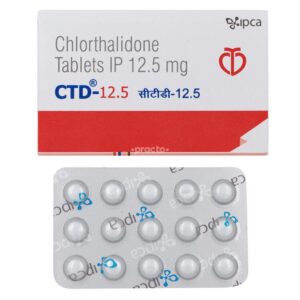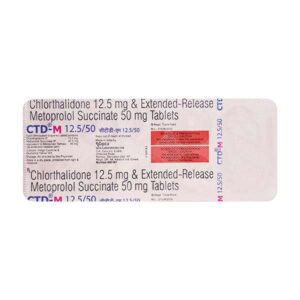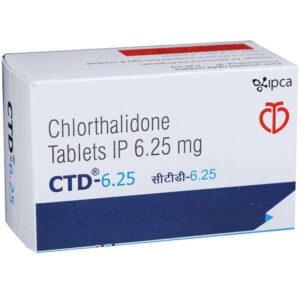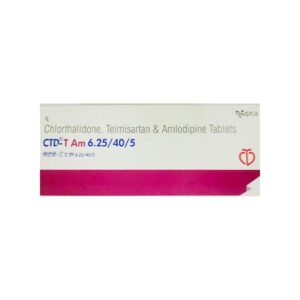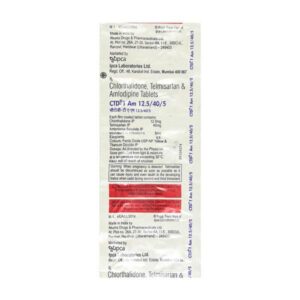CHLORTHALIDONE
CHLORTHALIDONE: Chlorthalidone is a medication belonging to the class of drugs called thiazide diuretics. It is primarily used to treat high blood pressure (hypertension) and to reduce fluid retention (edema) in conditions such as heart failure or liver disease.
The mechanism of action of chlorthalidone involves the inhibition of sodium reabsorption in the distal convoluted tubules of the kidneys. This leads to increased excretion of sodium and water, resulting in lower blood volume and decreased vascular resistance, ultimately leading to the reduction of blood pressure.
The usual recommended dose of chlorthalidone for hypertension is 25-50 mg once daily, with the maximum recommended dose being 100 mg per day. For edema, the usual dose ranges from 25-100 mg once daily, with the dosage determined by the individual’s response to the medication.
Possible side effects of chlorthalidone include dizziness, lightheadedness, headache, increased urination, muscle cramps, low blood potassium levels (hypokalemia), increased blood glucose levels in diabetic patients, sun sensitivity, rash, and gastrointestinal disturbances such as nausea, vomiting, or diarrhea.
It is important to note that chlorthalidone may interact with other medications, such as lithium, corticosteroids, nonsteroidal anti-inflammatory drugs (NSAIDs), or medications that lower blood potassium levels, so it is essential to inform your healthcare provider about all the medications you are taking.
As with any medication, it is crucial to follow the dosing instructions provided by your healthcare provider and notify them immediately if you experience any severe or persistent side effects.

